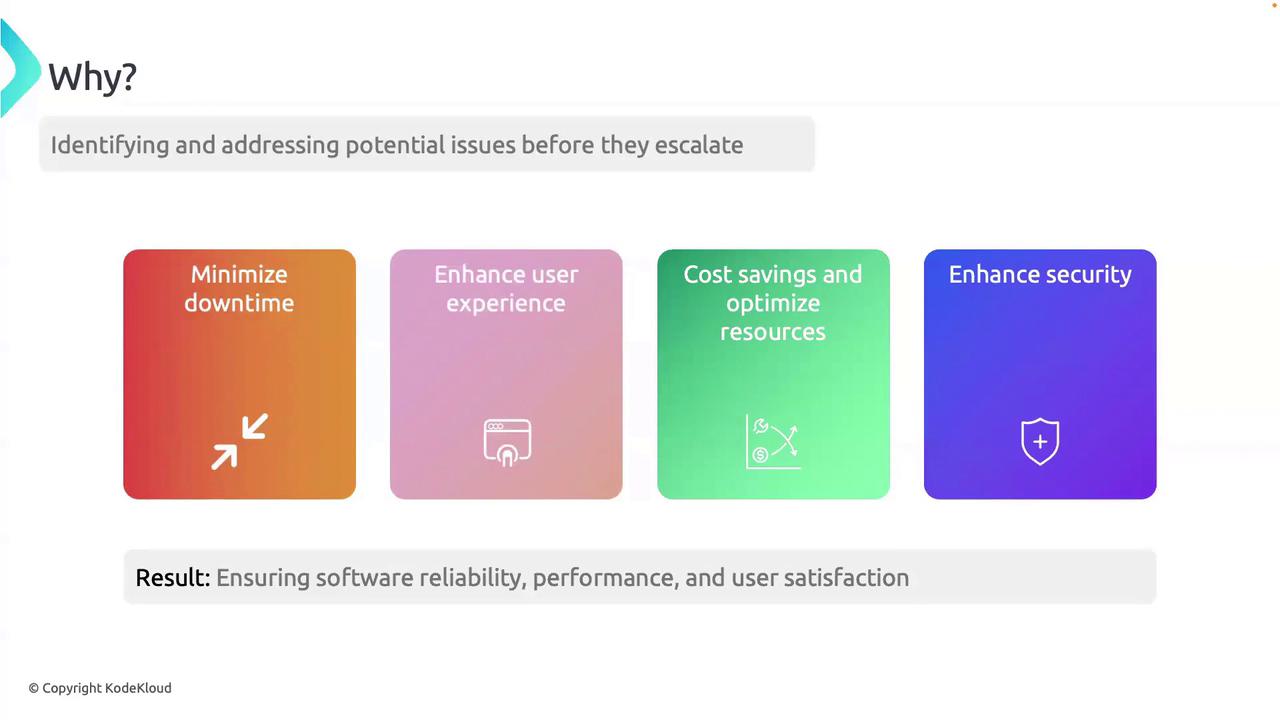AWS CloudWatch
Introduction to Observability in AWS
Proactive problem detection
Welcome back! In this lesson, we’ll dive into Proactive Problem Detection—the DevOps practice of predicting and preventing issues before they impact your users. By combining monitoring, alerting, and automation, you can catch anomalies early and keep your applications running smoothly.
What Is Proactive Problem Detection?
Proactive Problem Detection consists of three key pillars:
- Continuous Monitoring
- Automated Alerting
- Automatic Mitigation
By implementing these components, you can:
- Identify performance degradations in real time
- Trigger alerts when thresholds are breached
- Execute self-healing scripts or scale resources automatically
Note
Choose monitoring tools that support anomaly detection and customizable dashboards. For example, AWS CloudWatch Anomaly Detection can help you identify unusual patterns without manual threshold tuning.
Why Proactive Problem Detection Matters
Detecting and resolving issues early offers multiple advantages:
| Benefit | Description |
|---|---|
| Minimized Downtime | Reduce financial losses and protect your reputation by restoring service before outages. |
| Enhanced User Experience | Keep interactions seamless, ensuring users remain satisfied and engaged. |
| Cost Savings & Resource Optimization | Identify underutilized resources or over-provisioning to lower cloud expenses. |
| Strengthened Security | Spot suspicious activity or vulnerabilities early, preventing potential breaches. |

Key Outcomes
- Software Reliability: Keep your services available and resilient.
- Peak Performance: Maintain optimal response times under varying loads.
- User Satisfaction: Deliver a consistently high-quality experience.
Next Steps
Implement a monitoring strategy that covers infrastructure, application metrics, and security events. Automate responses with tools like AWS Lambda, PagerDuty, or custom scripts, and continuously refine your dashboards and alerts.
References
Watch Video
Watch video content